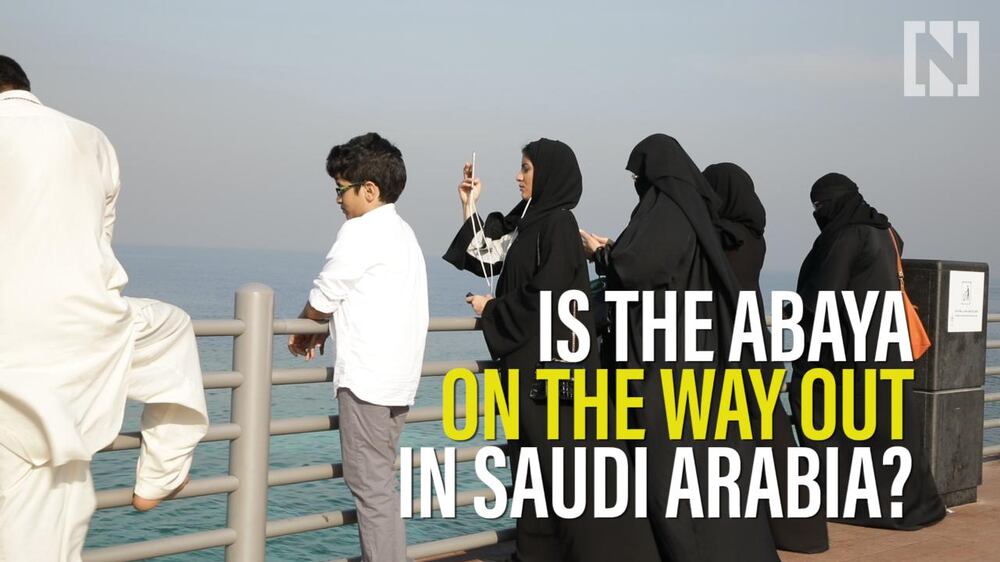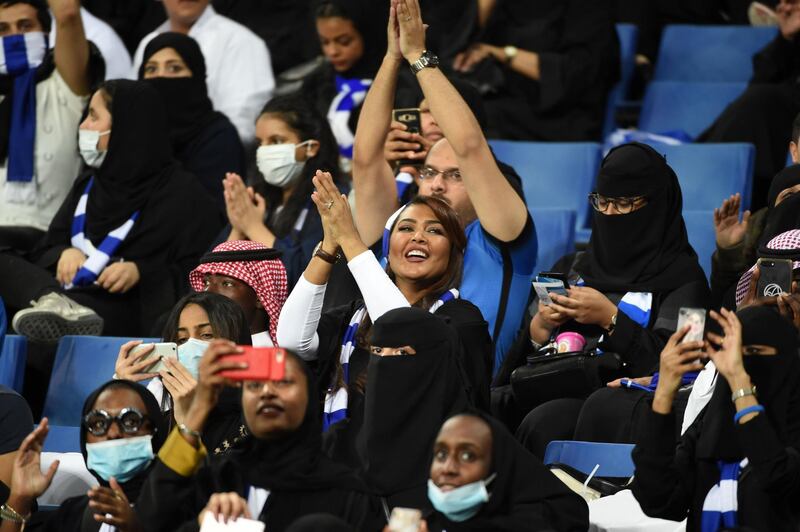For Jeddah resident Dr Lalia Al Helaly, the suggestion by a senior Saudi cleric that women should be able to choose whether or not to wear an abaya signals that extraordinary change is under way in the kingdom.
The Saudi relationship counsellor welcomed the remarks made last week by Sheikh Abduallah Al Mutlaq, a member of the country's Council of Senior Scholars, in which he said that dressing modestly did not necessitate wearing the full body covering.
Women in Saudi Arabia are required to wear an abaya in public, but Sheikh Al Mutlaq pointed to the fact that more than 90 per cent of Muslim women around the world do not wear the loose fitted garment.
“It’s a beautiful vision, we are in need of brave declarations that give hope that our society will become more open to discussing and accepting different ideologies,” said Dr Helaly, a specialist in familial relationships.
“Giving women the choice to dress modestly is fundamental, as they can choose how to dress without crossing the law."
Is the Abaya on the way out?

In the past year, Saudi Arabia has witnessed drastic reforms spearheaded by Crown Prince Mohammed bin Salman, particularly relating to women's rights. Women are now allowed to attend public sporting events and from June will be able to drive.
Sheikh Al Mutlaq's statement on Friday does not necessarily signal a change in the law. But it did mark the first time that a senior Saudi cleric had made such remarks.
“This is an indication that religious statements are aligning with the kingdom’s recent reforms,” Dr Helaly said.
Heba Al Ghamdi, a 28-year old Saudi accountant, said she was not surprised by the sheikh's comments, adding that the abaya is now commonly viewed in the kingdom as "traditional" dress rather than a religious necessity.
In recent years, many Saudi women have begun wearing more colourful abayas, as well as open versions of the garment over long skirts or jeans.
“This is the point the sheikh was making when he said the purpose is modesty, and hijab is not tied to a abaya exclusively,” Mrs Al Ghamdi said.
She said she saw Sheikh Al Mutlaq's statement as a positive move and in line with the kingdom's Vision 2030 economic diversification plan.
She predicted that the law would soon change to give women more choice over what they wear.
“There will be more freedom with regards to wearing the abaya as it will be more a matter of public taste rather than an association with religion,” she said.
_______________
Modest dress
The abaya: A guide to modest garments around the world
The debate on abayas marks Saudi Arabia's ongoing transformation
Saudi cleric says abaya no longer necessary for women
_______________
Sheikh Al Mutlaq’s statement polarised opinion online, however, with many social media users angry at his comments. That prompted the cleric to issue a denial that his remarks were an invitation for women to appear in public uncovered.
“I was surprised to see that people have interpreted my words incorrectly," he said. "My statement said that Muslim women around the world are not obliged to wear the covering, as long as what they wear does not violate the conditions of the Islamic veil.”
Law student Aya Mohammed, 22, suggested that the sheikh's comments had been met with such a strong reaction because they "used language that is different [to the] other religious statements that we as Saudi women are used to".
She added that his statement had been interpreted in different ways by different people depending on their personal perspective.
Significantly, one of those who voiced support for Sheikh Al Mutlaq online was Sheikh Abdul Aziz Al Mousa, another senior Saudi cleric.
Responding on Twitter he said that "chastity and morality should not be tied to a piece of cloth”.
* With additional reporting by Haneen Dajani






